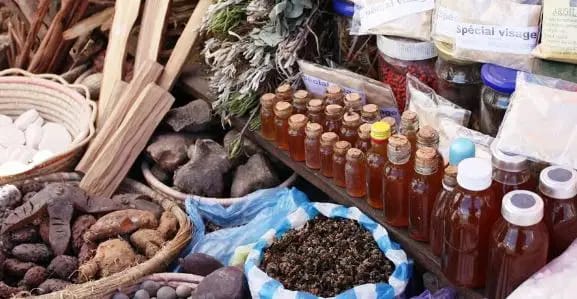The menace of unauthorised traditional medicine selling, by Salama Ishaku
The unauthorised selling of traditional medicine is gradually becoming a menace begging for our collective attention.
Across many towns and cities, traders openly display unlicensed herbal products, often with loud proclamations about their supposed healing powers.
While traditional medicine has long been a part of our culture, the unregulated and indiscriminate sale of these substances poses serious risks to public health and safety.
At motor parks, street corners, and crowded markets, it is common to see hawkers peddling mixtures in bottles and sachets, claiming they can cure anything from malaria and typhoid to infertility and diabetes.
READ ALSO: Menace of phone snatching, by Salama Ishaku
Some even promise instant solutions to chronic conditions that modern medicine struggles with.
These exaggerated claims lure unsuspecting citizens, particularly the poor and vulnerable, who are desperate for relief.
The danger, however, lies in the fact that most of these so-called remedies are not scientifically tested or approved by relevant health authorities. Without proper regulation, there is no guarantee of their safety, dosage, or effectiveness. Some of the concoctions are prepared in unhygienic conditions, exposing users to infections and long-term complications.
Equally worrisome is the way sellers often discourage people from seeking professional medical care. By instilling false confidence in their products, they convince patients to abandon prescribed treatment in favour of unproven alternatives.
This not only worsens health outcomes but also contributes to avoidable deaths that could have been prevented through timely medical intervention.
READ ALSO: NAFDAC slams down ‘healthy smoking’ herbal tea claims
Another aspect of this menace is the use of harmful substances. There have been reports of herbal mixtures laced with high doses of alcohol, caffeine, or other chemicals to create instant effects. Such practices endanger consumers who unknowingly ingest toxic elements in the name of treatment. The lack of labelling and dosage instructions further increases the risk of overdose.
The proliferation of unauthorised traditional medicine sellers also undermines the credibility of genuine traditional healers who practise responsibly and adhere to cultural ethics. By mixing quackery with legitimate herbal practices, the public perception of traditional medicine as a whole is eroded. This makes it difficult for serious practitioners to gain recognition and collaborate with modern healthcare providers.
Mr President and relevant health agencies must recognise that this problem requires urgent attention. Stronger regulatory measures need to be introduced to monitor and control the sale of traditional medicine. Sellers should be licensed, and products subjected to scientific testing to ensure they are safe for human consumption.
Public sensitisation is also essential. Citizens must be educated about the dangers of patronising unverified medicine sellers. Awareness campaigns through radio, television, social media, and community outreach will go a long way in discouraging reliance on unsafe remedies. People should be encouraged to seek medical advice from qualified professionals rather than fall prey to street hawkers.
Equally important is the need to strengthen the healthcare system. Many Nigerians resort to traditional sellers not out of choice but because hospitals are often inaccessible, expensive, or overcrowded. By improving affordability and access to quality healthcare, the dependence on unauthorised herbal remedies will naturally reduce.
READ ALSO: Herbal medicine, traditional medicine are not the same, says expert at ABU conference
There is also a need for collaboration between traditional and modern medicine. With proper regulation, research, and training, traditional knowledge can complement modern healthcare instead of competing with it. This would preserve our cultural heritage while safeguarding the health of citizens.
Communities themselves must take responsibility by reporting illegal sellers to the authorities. Religious and traditional leaders should also lend their voices in discouraging the spread of unregulated products. Tackling this menace is a collective duty, not one for government alone.
In conclusion, while traditional medicine has its place in our society, the unauthorised and reckless selling of herbal products is a ticking time bomb. The longer we ignore it, the greater the health risks we invite upon ourselves. For the safety of our nation, decisive action must be taken now to regulate traditional medicine, protect citizens, and uphold public health standards.
Salama Ishaku is a student of Mass Communication at the Muhammadu Buhari University of Maiduguri (formerly University of Maiduguri), Borno State.
Follow the Neptune Prime channel on WhatsApp:
Do you have breaking news, interview request, opinion, suggestion, or want your event covered? Email us at neptuneprime2233@gmail.com





